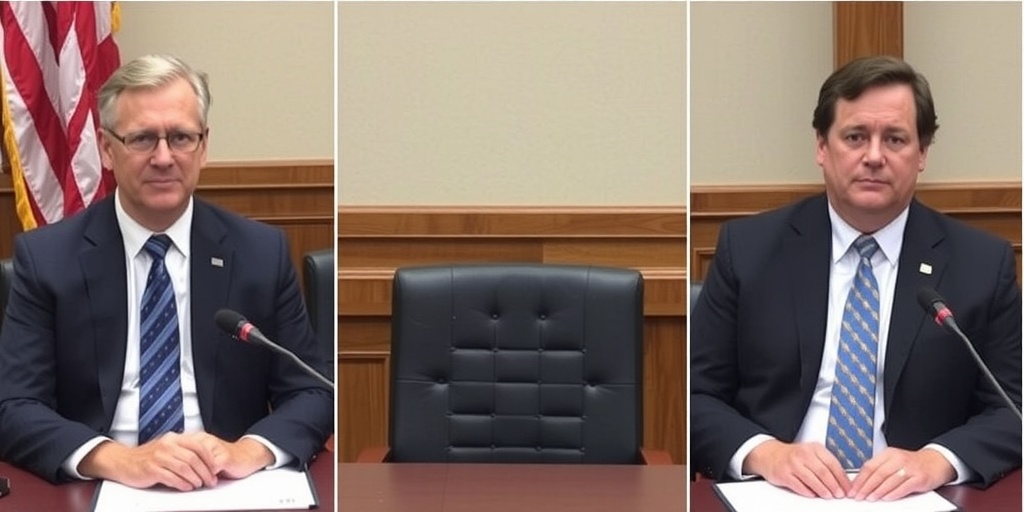Now Reading: IRS Restricts Musk Ally’s Access to Personal Information
-
01
IRS Restricts Musk Ally’s Access to Personal Information
IRS Restricts Musk Ally’s Access to Personal Information

IRS Implements Restrictions on Access to Tax Returns for Elon Musk’s Team Member
In a significant development concerning data privacy and security within the Internal Revenue Service (IRS), the agency has established stringent limitations on the access that a key member of Elon Musk’s team will have to sensitive taxpayer information during his temporary assignment. This decision comes amid ongoing concerns regarding the security of individual tax returns and the potential implications of allowing private sector individuals broader access to government databases.
The individual in question, Gavin Kliger, a 25-year-old software engineer, has been temporarily assigned to the IRS as part of an initiative by the Trump administration aimed at enhancing the agency’s information technology systems and combating fraud. His assignment is part of a broader strategy to streamline and improve IRS operations through modern technology solutions.
White House officials had initially advocated for Kliger to have extensive access to IRS data to fulfill his responsibilities effectively. However, the prospect of granting such unrestricted access raised significant alarms within the agency. IRS officials voiced strong concerns about the potential risks associated with enabling Kliger to view databases that contain sensitive information pertaining to millions of American taxpayers, as well as various nonprofits and companies.
To address these concerns, a memorandum of understanding was established between the IRS and the Office of Personnel Management (OPM), where Kliger serves as a senior adviser. This agreement explicitly details the limitations on Kliger’s access to taxpayer information while he is stationed at the IRS. According to the terms laid out in the agreement, Kliger’s access to IRS systems containing tax returns or any return-related information will only be permitted under very specific circumstances. If such access becomes necessary as part of his assigned duties, the information provided to him must be anonymized and structured in a way that prevents direct or indirect association with any individual taxpayer.
The memorandum indicates that Kliger’s temporary assignment is set to last for 120 days, with the possibility of an extension for an additional 120 days. John York, a counselor at the Treasury Department, has been designated to oversee Kliger’s work at the IRS. Despite these arrangements already being in place, a spokeswoman for the Treasury Department has not responded to inquiries regarding additional details about Kliger’s role or the overall project.
This agreement is seen as a critical step toward alleviating concerns raised by lawmakers and advocacy groups regarding the privacy and security of taxpayer information held by the IRS. The potential for misuse of confidential data has been a point of contention, leading to repeated legal challenges against the administration’s decision to allow members of Musk’s team access to various government databases.
In a related court case contesting access to the Treasury’s payment system, John York provided a sworn statement confirming that the Treasury is also in the process of hiring two additional members within the newly created Department of Government Efficiency. These new hires will focus on addressing technology-related challenges at the IRS, further underscoring the agency’s commitment to modernizing its operations while ensuring the confidentiality of sensitive data.
As Kliger settles into his role at IRS headquarters, it has been noted that he is currently the only representative from Musk’s team who has begun work at the agency, with no additional team members having arrived as of yet. This underscores the gradual nature of the integration process and the cautious approach being taken in balancing the need for innovation with the imperative of safeguarding taxpayer information.
The IRS, a cornerstone agency responsible for collecting taxes and enforcing tax laws, has consistently faced scrutiny over its data security protocols. The recent agreement and the restrictions placed on access by Kliger may help restore confidence among the public and policymakers alike regarding the safeguarding of sensitive taxpayer data amid evolving technological landscapes.
As the IRS embarks on this temporary partnership with Kliger, all eyes will be on the effectiveness of these measures in not only improving technology within the agency but also in maintaining the sanctity and confidentiality of taxpayer information in an era increasingly defined by digital interaction and data interchange. The implications of this partnership, along with its compliance to data privacy standards, will be closely monitored by various stakeholders.
Stay Informed With the Latest & Most Important News
Previous Post
Next Post
-
 01New technology breakthrough has everyone talking right now
01New technology breakthrough has everyone talking right now -
 02Unbelievable life hack everyone needs to try today
02Unbelievable life hack everyone needs to try today -
 03Fascinating discovery found buried deep beneath the ocean
03Fascinating discovery found buried deep beneath the ocean -
 04Man invents genius device that solves everyday problems
04Man invents genius device that solves everyday problems -
 05Shocking discovery that changes what we know forever
05Shocking discovery that changes what we know forever -
 06Internet goes wild over celebrity’s unexpected fashion choice
06Internet goes wild over celebrity’s unexpected fashion choice -
 07Rare animal sighting stuns scientists and wildlife lovers
07Rare animal sighting stuns scientists and wildlife lovers





















